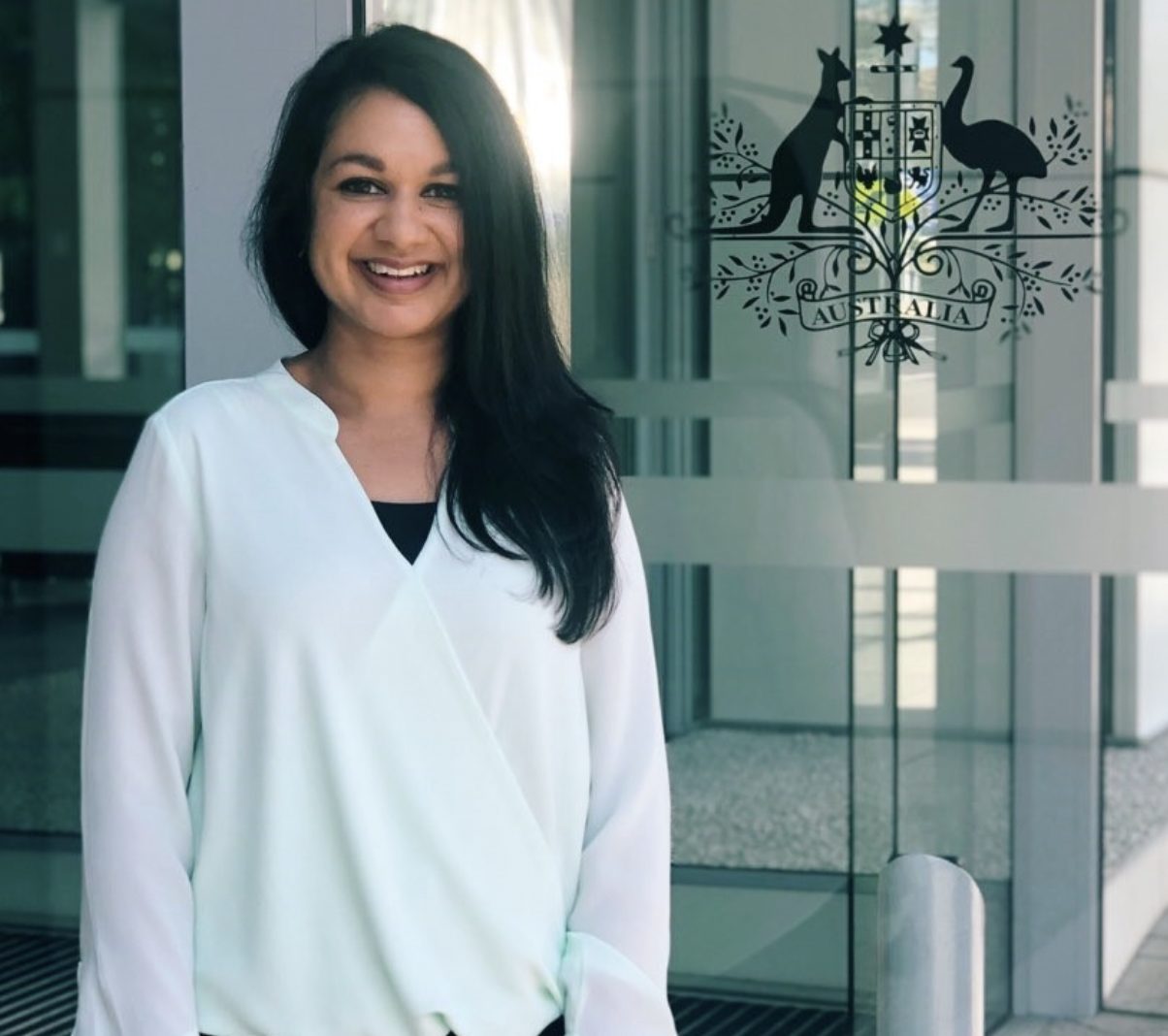
Meet Dr Rushika Wirasinha, a Director at the Australian Government Department of Health and Aged Care. Here she talks about her work on health policy, following a career pivot from immunologist to public servant. Rushika was a Science Policy Fellow in 2019–2020; applications for the Australian Science Policy Fellowship Program will open in February 2023.

What is your current role and how did you get to be there?
My current role is a director in the Commonwealth Department of Health and Aged Care (the Department). My section is responsible for national policies and programs that improve Australian patients’ access to organ and tissue (including stem cell) donation and transplantation. It’s a really rewarding space to work in, as the role enables me to apply my scientific training to real-world health policy decisions and reforms. Since joining the Department in 2019 I have also worked on Medicare policy related to medical specialist services and on Medical Research Future Fund policies, programs and grant opportunity initiatives
pivoted from an academic research career as an immunologist to join the public service as a 2019–2020 Science Policy Fellow. The Australian Science Policy Fellowship provides a pathway for early- to mid-career scientists to become embedded in federal government departments to fast-track their development to becoming experienced in public policy. An initiative of the Office of the Chief Scientist, the Fellowship aims to grow expertise of the Australian Public Service (APS) and provides training, mentoring and alumni networking opportunities. As part of the Science Policy Fellow alumni, I look forward to supporting future directions for the program and science advocacy in Australia.
This program has expanded my networks and thereby opened the door to many opportunities in the future. I would never have thought that 3 years on I would have learnt so much – similarly to research, no 2 days of working on strategic policy in the APS are the same.
My career as an immunologist commenced as an honours student at the Australian National University, working with mouse models of autoimmune disease. After a brief time working in the public service, I returned to research for my PhD at the Garvan Institute of Medical Research, and worked on understanding the genetic basis of autoimmune diseases, and the development and function of T cells. My research on a rare disease in patients with mutations in the NFKB2 gene revealed that these individuals develop organ-specific autoimmunity due to defects in T-cell development. I am grateful to have had the opportunity to work with great people on novel research topics; it is these skills that I leverage in my current role and I believe will set me up for future career moves as well.
How does your work contribute to the field and/or the overall health and wellbeing of the community?
My career aspirations centre on medicine and the health sector – to contribute towards research, policy and programs that add knowledge and improve health outcomes for individuals. The most rewarding change in transitioning from fundamental research to health policy is to see the direct impact policy decisions have on Australians being able to more easily and readily access medicines and health services. I can see the community-level implications of my policy work.
My career transition has been captured in my article, ‘From bench to bureaucracy: the path from academic research to science policy’. There, I’ve reflected on how COVID-19 has taught us the importance for academic research to be translated into effective, evidence-informed policy for public health measures. The pandemic has also taught us that scientists and policymakers have a key role to support government establish policies and, importantly, to effectively communicate complex concepts, simply to the public.
What project would you love to get off the ground, or skill would you develop, if you had the opportunity?
There are so many things I’d love to do. In relation to my work, I’m interested in working on ‘wicked problems’ of the health system. To tackle these topics, I’d like to build and manage teams comprised of diverse expertise; complementary skills drive fascinating discussions and lead to novel insights.
Outside of work, if I had the opportunity and unlimited time to dedicate to activities, I’d like to learn to speak a new language, play the violin, speed read and complete a DIY Bunnings project!
What are your loves outside of work?
I’m a foodie and enjoy visiting local wineries. Actually, most of my well-spent, enjoyable time is spent sharing good food with friends and family. I have a passion for music – I play and teach piano. I enjoy watching sport – summertime cricket and tennis, winter-time rugby and AFL (go the Bombers!).
What is one piece of advice you could pass onto others following their own career in the health and medical research sector?
To pursue a career in health and medical research, resilience, perseverance and determination are key. Scientific knowledge, training and networks are like no other – these will equip you for pursuing diverse careers. It is important to recognise and know your worth and the applicability of your experience across numerous opportunities! Embrace new challenges – you never know what might be around the corner, so I find it’s good to keep an open mind and be ready to pivot and run with the new opportunity.
